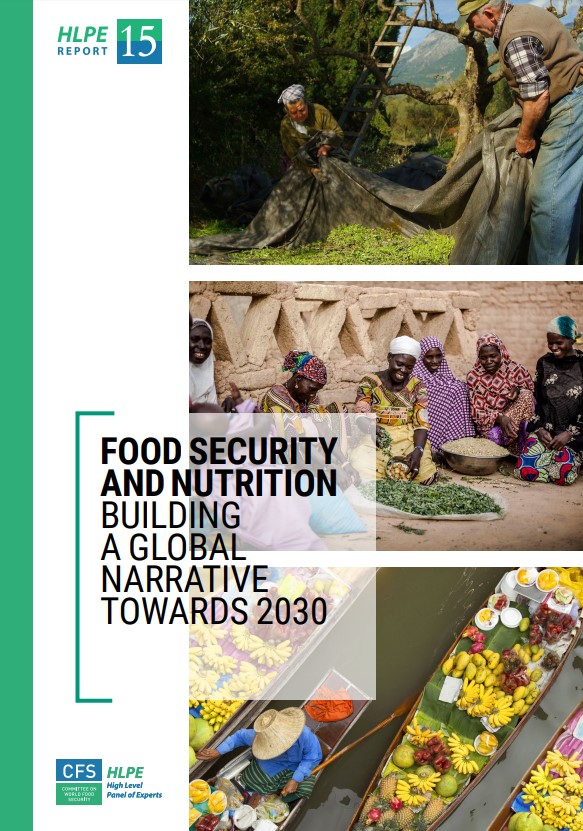Head of School of Agriculture, Food and Wine Professor Martin Cole, chairs The High Level Panel of Experts on Food Security and Nutrition (HLPE). This Committee has produced a major report on food security and how it has changed thanks to COVID-19.


The global community is falling short on Agenda 2030’s sustainable development goals (SDGs), especially on ending hunger and malnutrition in all its forms (SDG 2). The COVID-19 pandemic has revealed and exacerbated the challenges that food systems were already facing and made obvious that urgent and radical reforms are needed to guarantee the fundamental human right to adequate food for all.
“The COVID-19 pandemic makes this situation even more urgent: world hunger is projected to rise, with the most affected being the poorest and most vulnerable segments of the population”, says Professor Martin Cole, the HLPE Chairperson and Head of the School of Agriculture, food and Wine at the University of Adelaide’s Waite campus.
The report, entitled “Food security and nutrition: building a global narrative towards 2030”, sets out an analytical and conceptual framework and suggests strategic orientations for a radical transformation of food systems. The report calls for agency and sustainability to be elevated as essential dimensions of food security and nutrition (FSN), together with availability, access, utilisation and stability.
“The timing of this report is crucial, as the state of global food security and nutrition is alarming, with an increased number of undernourished people and the spreading of all forms of malnutrition, including overweight and obesity.”
“It is vital that the global community seizes this moment to adopt new frameworks for food security and nutrition which are centred on the right to food and on a sustainable food systems approach.”
Concrete solutions to ensure the right to food will require major policy shifts to make this radical transformation of food systems possible, according to different contexts, while acknowledging the complexity of their interactions with other sectors and understanding better the drivers of hunger and malnutrition.
As a decisive Food Systems Summit will gather the world’s heads of states and governments in 2021: it is vital that the global community seize this moment to adopt new food system frameworks, which will not only be more resilient to crises, but also more equitable and inclusive, empowering and respectful, regenerative, healthy and nutritious, as well as productive and prosperous for all.
This radical transformation is urgently needed in order to eradicate hunger and all forms of malnutrition as a fundamental part of achieving all SDGs.
For more information and to download the full report, visit the HLPE website at: www.fao.org/cfs/cfs-hlpe/
